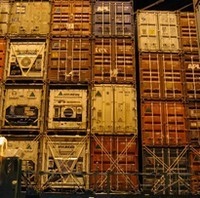In late-September, Mayor Mike Bell of Toledo, Ohio, a city of 290,000 about an hour’s drive south of Detroit, hosted a three-day conference for more than 200 Chinese business executives. Like many other cities across the manufacturing belt of the U.S. Midwest, Toledo has suffered over the past decade, during which some 50,000 jobs disappeared and its population fell by nearly 10 percent. But the depressed local real estate prices that accompanied the downturn have attracted new buyers from an unexpected place: While overall Chinese investment in the United States remains tiny, over the past year one Chinese group spent $3 million to buy and refurbish Toledo’s largest hotel, and another spent $2 million on a restaurant complex and nearly $4 million to buy up riverside land. To Bell, Chinese money offers some hope of revitalization for his city, and the meeting, as well as his frequent trips to China, was intended to encourage more buyers.
That same week, however, the two candidates in the U.S. presidential election -- President Barack Obama and Republican nominee Mitt Romney -- were in Toledo delivering a very different message. Historically, Ohio is the electoral swing state of all swing states. No presidential candidate has won the election without also winning Ohio since Harry Truman in 1948, and no Republican has ever won the Oval Office without carrying the state. Campaign pollsters work overtime to figure out precisely what will sell to voters there. And their message on China was rather different than Bell’s.
Obama used the state as a backdrop to announce a new World Trade Organization case brought by the U.S. charging that China had unfairly given more than $1 billion in subsidies for exports of cars and car parts, hurting its American competitors. “These are subsidies that directly harm working men and women on the assembly lines in Ohio and Michigan and across the Midwest,” Obama told a rally. “It’s not right. It’s against the rules, and we will not let it stand.”

